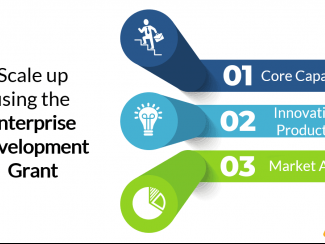What Makes A Right Talent?
Have you ever wondered what makes a talent great? Here's the formula:
Right Talents = High Performance + Overall Fit
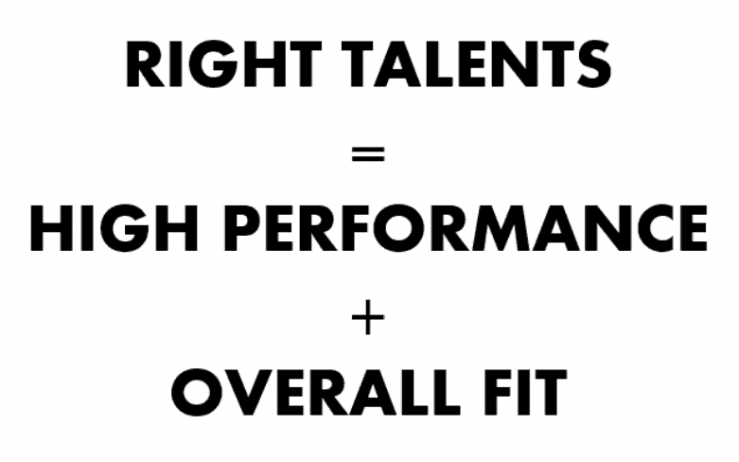
High performance can be understood from a productivity standpoint where it implies producing more output per unit time.
Overall Fit is about how well the employee is suited for the job position and could assimilate well with the company's culture. Combining "High Performance" + "Overall Fit", we get the following graph that shows the return on investment from a right talent.
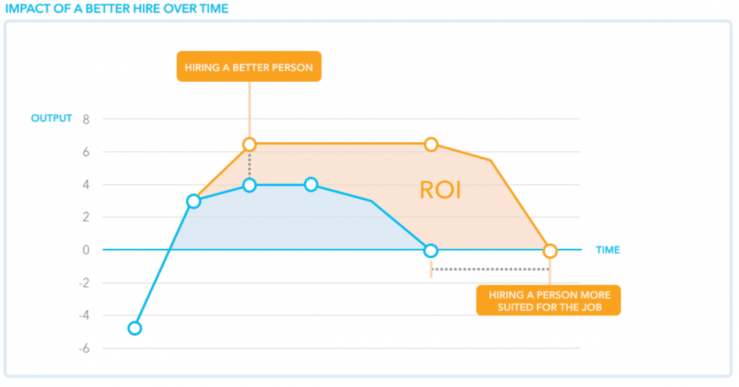
In a study by Keller and Meaney (2017), high performers are up to 8x more productive than average performers! This meant that if a competitor used 20% more right talent in similar efforts, it would beat you to market even if it started a year or two after you! In addition to being less productive, a poor quality of hire is also likely to cause you a lot of headaches. Almost 96% of Singapore bosses struggles in managing poor performers, and loses half a day in doing so.
What atmosphere should I set for the interview?
As much as you are looking for your right talent or star candidate, those qualified talents are also looking out for successful companies through their usual job search. So you want to make sure that your recruiting process creates a positive candidate experience and reflects your company culture. Consider bringing along your current employees to share their daily work-life and the types of career paths that they have enjoyed thus far. For candidates who showed interest in working in a diverse environment, you may also share about the sort of talents that you have in the company.
Does this mean we should not conduct “stress-test” or “quick-fire interviews” for potential candidates?
Avoid stress tests!
Stress test puts the company’s brand on the line. With social media platforms (eg Twitter and Facebook) and company review sites (eg Glassdoor), candidates can now easily put up reviews that tarnish your employer branding, making it difficult for you to find talents. So, if you are not confident in doing stress tests professionally, we advise you to stay out of it.
What Interview Questions Should I Use To Recruit Right Candidates?
The responsibility to pick the right candidate does not solely rest on your Human Resources team, but the managers as well. So it is equally important to equip your managers with the skill sets to bring onboard right employees to your company.
There are 2 common types of interview questions: General questions and competency-based questions.
General Questions To Ask
General questions are meant to help you have a deeper understanding of the candidate.
Questions that we find most effective are:
- How would your ex-boss rate you on a scale of 1 (very poor) to 10 (very good). Why not a point lower? Why not a point higher?
- How would you rate your ex-boss performance on a scale of 1 (very poor) to 10 (very good). Why not a point lower? Why not a point higher?
- How would you rate your performance in your previous job on a scale of 1 (very poor) to 10 (very good). Why not a point lower? Why not a point higher?
With the first 2 questions, you want to assess the leadership style that is important to the candidate and how the candidate manages upwards. For example, the candidate may mention that the ex-boss would rate him 6 out of 10 and give the explanation that his performance would not be rated a point higher as he was not supported with enough resources to perform at a higher level. At this juncture, you would want to clarify further and assess if your company has a similar practice due to constraints. If so, then it is important to inform the candidate of the company’s situation and let the candidate know how he may be successful despite this constraints.
Likewise, If the ex-boss was rated a 4 out of 10 and "why not a point higher" was explained by the ex-boss providing too little guidance daily, you may want to evaluate your leadership style if you too are a boss that provides little guidance. If so, then that is a potential red flag as it signals poor leadership fit between the candidate and yourself.
Question 3 is to assess for a growth mindset and weaknesses in the candidate. Help me do a little reflection on your past hiring experiences. If you have ever asked "what are your strengths and weaknesses", how often do candidates give you standard answers such as "being overly focused on work" or "I am a perfectionist who may spend too much time on a single work". We label those types of replies as "non-answer", the equivalent of not answering. It simply adds little to no value for the interviewer in knowing the candidate better. However, by reframing the question as shown in Question 3, your chances of getting a real answer improve significantly.
“ If you have ever asked "what are your strengths and weaknesses", how often do candidates gave you standard answers? Qn 3 helps you overcome this problem.“
Competency Based Question To Ask
Competency-based questions gather information about their actual behaviour during past experiences which demonstrate competencies required for the job. The underlying premise is the best indicator of future behaviour on the job is past behaviour under similar circumstances.
The STAR method is a structured manner of probing for information during a competency-based interview question by asking the specific situation, task, action, and result of the situation the interviewee is describing.
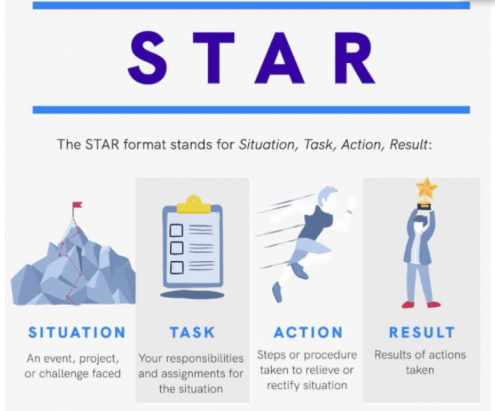
Situation: What was the situation that the interviewee was in or the task that the interviewee needed to accomplish? The candidate should describe the specific event or situation, and not a generalised description of what he/she has done in the past. The situation can be from a previous job, volunteer experience, or any relevant event.
Task: What were the responsibilities and assignments for the situation that the interviewee needed to do?
Action: What actions did the interviewee take to address the situation?
Specifically, what steps did the interviewee take and what was the interviewee’s particular contribution? Be aware when the interviewee describes what the team or group did when talking about a project and bring the focus back to the interviewee when such an instance occurred.
Results: What was the outcome of the interviewee’s actions and how did the event end? What did the interviewee accomplish and learn from it
Inexperienced candidates will almost always respond with a hypothetical situation. Such as starting the phrase "If I am in such a situation....".
If this occurs, the hiring team should stop the candidate right there! Interject by saying "we would like for you to share an actual situation that has happened in your life. Can you take some time to recall a specific time in which you experienced the situation?"

What Test Should I Use During Hiring?
If you are thinking about using a personality test for evaluating your next applicant, you may want to start dropping that idea.
Personality tests provide insights for personal development such as self-discovery, enhancing communications etc. However, due to highly inconsistent results of predicting job performance, they are NOT IDEAL for use in evaluating your pool of candidates.
A recent paper by Frank Schmidt and colleagues summarises the effectiveness of 31 different assessment methods for the prediction of job performance and 16 for the prediction of performance in job-related training.
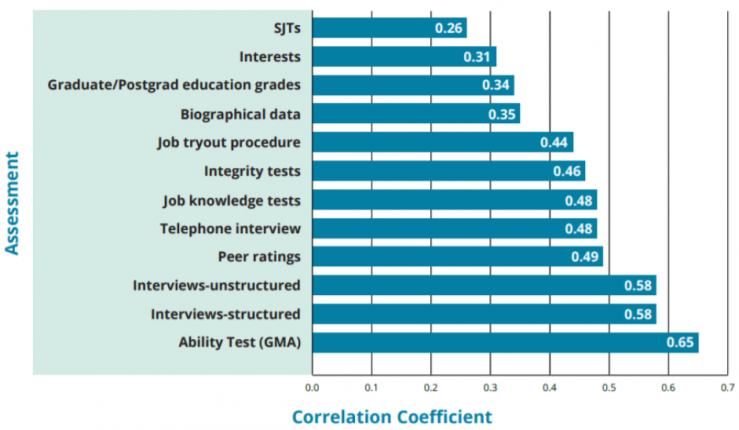
Frank Schmidt (2016) researched the correlation between 31 assessment methods to job performance. In his comprehensive study, he found discovered that General Mental Ability (GMA) test best predicts a new hire’s performance at work. GMA is also best in predicting the performance of job-related training. This means that not only do high GMA scoring candidates are more likely to perform well in their job, but they are also likely to be fast learners who can quickly translate learnings into an application.
Many vendors provide GMA tests for hiring purposes. If you would like to try a free version, you can consider Practice Aptitude Test.

Who To Pick? Right Talents vs. Great Talents
So, you have now narrowed down your potential candidates, who do you choose?Let us imagine you are the boss of an SME looking to fill the position of a Senior HR Executive, and there are 2 candidates for your consideration:
- Samuel - Served as an HR Director in an MNC for 10 years.
- Jonathan - Served as an HR Manager in an SME for 5 years
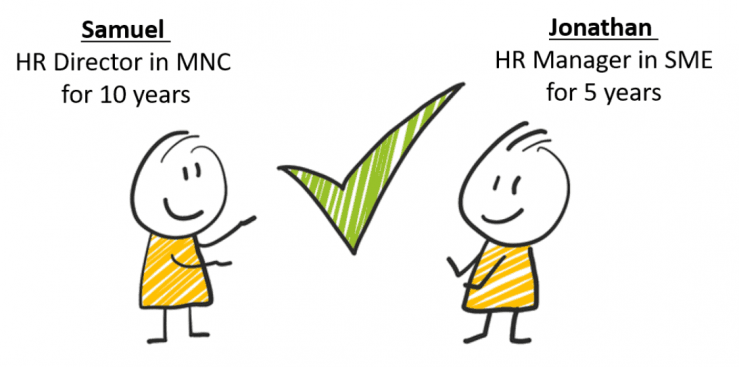
Assuming they are both willing to accept your proposed salary, you'd think that the ideal candidate is Samuel given his experience, right? Perhaps not.
During the interview, you might find out that Samuel has a dominating persona with a strong sense of opinion, whereas Jonathan has a growth mindset that continuously seeks to listen and improve. Hence, Jonathan may have a stronger culture fit making him the star candidate.
Now, what happens if you choose to hire the "Best Talent" while closing an eye to signals during the interview that the talent may negatively influence culture?
Often, companies that do so suffer more than they stand to gain.
As Peter Drucker once said, "Culture eats strategy for breakfast".
An impacted culture not only demoralises the entire team which lowers overall productivity, but it can also push your company further away from achieving your strategic goals! In the worst-case scenario, you'll be faced with high attrition as your employees leave you to escape from the company's poor culture.
What’s next?
If you have the right talent in your team, then you would have already won half the battle in your entrepreneurial journey. What’s next is to then provide them with additional resources so that they can become more productive for you. If for whatever reason that what you thought was a good hire turned out to be a bad hire, restart your recruitment process and find your next best candidate from the applicant pool.
Many bosses tend to hold on to these bad hires by extending their probation, thinking that perhaps with time they will improve. Unfortunately, 90% of the time, these drastic improvements do not happen, and they are asked to leave either way.
With each restart of the recruitment process, ask yourself and your hiring team what could have been done better. Over time, as your recruitment process and strategies get refined, you will be able to increase your chances of hiring right talents frequently.

Mak Foo Sing
Foo Sing is an HR Business Partner at Align Group. He received his Bachelor of Arts in Psychology from Nanyang Technological University. When not writing, he is usually found in his favourite coffee shop or outdoor trekking.
Other Recommended Articles


